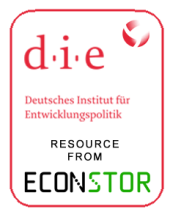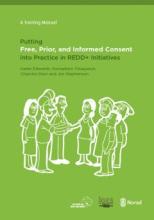/ library resources
Showing items 1 through 9 of 3763.This report synthesizes the findings from field research on land and natural resource tenure in 11 administrative clan units (henceforth referred to as „clans‟) in Liberia, including Ding, Dobli, Gbanshay, Little Kola, Mana, Motor Road, Saykleken, Tengia, Upper Workor, Ylan, and the community of
A nation formed just 10 years ago, Timor-Leste struggles to overcome complex challenges of land ownership and use rights that were created under Portuguese and Indonesian rule.
This paper examines the various ways in which migrant settlers have gained and maintained access to land in the informal urban settlements of Wewak, the provincial capital of East Sepik Province, Papua New Guinea (PNG).
Palm oil production is currently the focus of much contentious debate. On the one hand, palm oil production has a substantial, positive (socio-) economic impact in countries which produce it, like Indonesia, and is a powerful engine of rural development.
The purpose of this paper is to determine the factors which influence the land market in Republic of Moldova. The paper aims to discover the determinants for land pricing using the spatial econometrics modeling, as it is widely used when the spatial component is present.
În acest articol este evaluat mecanismul de piaţă a operaţiilor de vânzare – cumpărare a terenurilor agricole în Republica Moldova. Analiza pieţei funciare în ţările CentralEuropene atestă proceduri macroeconomice specifice de formare a preţurilor terenurilor agricole.
An international workshop on Forest and Land Tenure Reform was held in Vientiane on 28-29 August, 2012. The workshop was hosted by the National Assembly of Lao PDR, with support from RECOFTC – The Center for People and Forests through the Rights and Resources Initiatives (RRI).
Conflict over forest resources is one of the major challenges in forest management. Researchers have observed that the number and severity of forest conflicts in Asia has increased over time, and that forest conflicts are now widespread across the region.
The principle that indigenous peoples and local communities have a right to give or withhold their Free, Prior, and Informed Consent (FPIC) to developments affecting natural resources is not new.
Paginación
Land Library Search
Through our robust search engine, you can search for any item of the over 73,000 highly curated resources in the Land Library.
If you would like to find an overview of what is possible, feel free to peruse the Search Guide.







